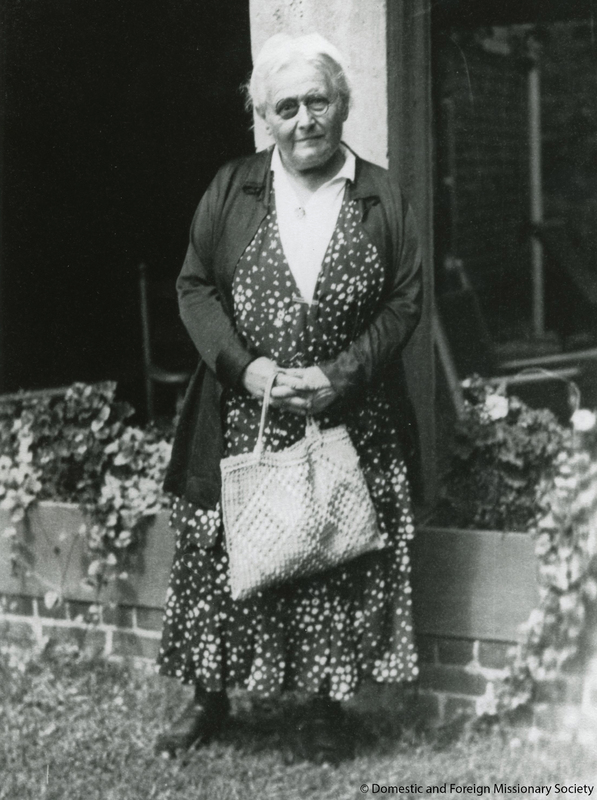Vida Scudder
Vida Scudder (1861-1954) was born into a Congregationalist missionary family in Madura, India, although she did not live there long. She returned with her mother to Auburndale, Massachusetts, while still an infant, following her father’s untimely death. She grew up in her grandparents’ home surrounded by a close extended family, including two aunts who shared her christened name: Julia. Still young enough to not remember her former name, she was renamed “Vida,” a shortened form of “Davida,” after her father, David.
Fond of literature and desirous of a college education from an early age, Scudder enrolled in the Girl’s Latin School in Boston in 1878, at the age of sixteen. There she received a Classical education and two years later, she entered Smith College. Upon graduating in 1884, she and one of her close friends became the first American women to study at Oxford. Scudder later earned a Master of Arts from Smith College and, in 1887, took a position teaching English literature at Wellesley College. She remained a professor at Wellesley until her retirement in 1927.
In addition to teaching, Scudder was dedicated to social reconstruction. She brought these two passions together as an early member and first president of the College Settlements Association, an organization that united boarding houses in which women from different colleges could live and work in communities other than their own during vacation periods. These settlements were a “chief power house of social activity” at the time, being not only places of community service but also where ideas were shared between people of different faiths and social classes.
It was through the settlements that Scudder came into contact with the Labor movement and her passion for working-class initiative began. She considered herself “ardently and definitely a socialist,” and was a dues-paying member of approximately fifty-nine different reform societies. Perhaps her most important association was with the Church League for Industrial Democracy (CLID) for which she was chairperson of the executive committee. Formed in 1917 from the remnants of a Christian Socialist group, the CLID sought to “unite Episcopalians who [believed] it the Church’s function to work for justice as a motive in social change.” As Scudder describes, “We [sought] to interpret the Church to the workers; we also [sought] to interpret the workers to the Church.” This philosophy was illustrated by action in the fall of 1924 when the organization brokered a settlement between owners and striking silkmill workers in Paterson, New Jersey.
After retiring from Wellesley, Scudder embarked on a study of St. Francis and his disciples, wanting to examine “the whole relation of Christianity to the ethics of private ownership.” She published this and other works over her long retirement. Vida Scudder died on October 9, 1954, at the age of 92.

